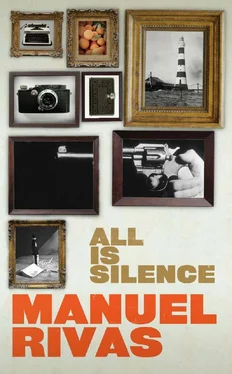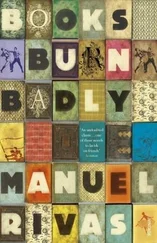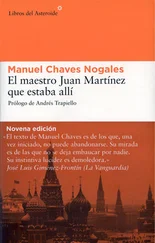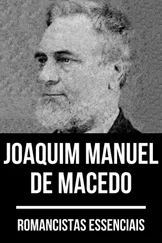Mariscal falls silent. Curls Sira’s hair in his fingers. An electrifying pleasure for him. Like the first day Guadalupe cut his hair, the way she swept over his temples. Shame about the hairdresser. Some people are like that, they never settle down, are never content. They still sleep together. He occasionally mounts her. But she’s not on fire. She doesn’t burn. Like a fridge. That’s what I say. Memory is a discomfort, that’s right, time decays, all those words in the drawer, when suddenly the door opens.
Quique Rumbo. With agitated breathing. The wind has finally found a way in. Sira and Mariscal turn their heads towards him, but otherwise remain still where they are. To begin with, Rumbo takes aim at Sira, but then he hesitates, swings the weapon around until he has Mariscal in his sights.
Finally he turns the gun against himself. Presses it against his chin. And fires.
Reverberates.
Everything’s gone. The wind towards the landing.
Trickles of blood run down the veins of the acanthus leaves on the wallpaper. Drops fall from the ceiling. Mariscal stretches out his hand. Where the hell are these drops coming from? From the ceiling, right. He hadn’t thought about that. The way dripping blood is silent.
‘Don’t cry, Sira. I’ll take care of everything. He died because he wanted to!’
Per se .
‘TWO CELTIC KINGS, let’s say, are playing chess on top of a hill while their troops are out fighting. The battle ends, but the kings carry on playing. This is an image I like a lot. You’re a king, Brancana. On top of the hill. Let the pawns do the fighting!’
They were in Delmiro Oliveira’s office, an artificial tower with its own terrace, from which the guests could enjoy a broad panorama of the Miño estuary with its islets. It was a good distance from the voices of the partygoers occupying the garden and rooms of the house in Quinta da Velha Saudade, only partly visible from the river, protected by high walls and screens of vegetation, mostly bougainvilleas in flower.
It was the host’s seventy-fifth birthday, though this was an excuse. He was happy at home and it seemed ridiculous to celebrate the falling of leaves. But he’d received a call, he didn’t let on about this, and made the most of the occasion. Around his desk, apart from Mariscal and Macro Gamboa, the silent Galician partner with him, were the lawyer Óscar Mendoza, the Italian Tonino Montiglio, and Fabio, known to his friends as the Elephant, a Colombian who lived in Madrid, but who’d recently spent a period in Galicia. His nickname was a result of the enthusiasm he’d shown for a cheerful establishment in Lisbon, O Elefante Branco.
They would soon head down to the banquet, where there would be toasts for the future. But now they were concerned with the present. Mariscal understood that the present had largely to do with him. He’d been welcomed with encouraging hugs, following the death of Rumbo in the Ultramar. ‘A misfortune. A breakdown, Mariscal. People break down.’ He’d remained silent. This mechanical diagnosis didn’t give him much comfort. One breakdown leads to another, etc., etc. He was too old to think about committing suicide. Besides, he didn’t have the guts to shit so high. Or so he thought to begin with. What to do? Ite, Missa est.
‘You’ll always have Mendoza to apply a bandage rather than a wound,’ his host continued. ‘To avoid further misfortunes. There’s nothing worse for a firm than hatred between factions. The firm looks after everybody. Factions plunder on their own.’
‘That’s true,’ said Mendoza. ‘The merit of my profession consists not in winning lawsuits, as people think, but in avoiding them. It’s a question of seeking out allies, not enemies.’
‘And how’s the new captain of the fleet?’ asked Fabio.
‘He has courage… and ambition.’
Delmiro Oliveira seemed to come to at this point, with that capacity he had for walking between the audible and the inaudible, and made his own connection between the two nouns, ‘Courage and ambition? Misfortunes never come singly.’
All his jokes, uttered in a serious tone, like those of good comedians, had their meaning. Were acts in themselves. So Mariscal laughed along with the others until the laughter died down.
‘That’s right. He has courage. Too much perhaps. The wolf will have to learn how to be a fox, isn’t that so, Mendoza? On Galician coats of arms there are plenty of wolves and not enough foxes. Then it turned out there were too many foxes and not enough wolves. Or vice versa.’
‘I think he’s inherited the best of both animals,’ declared Mendoza. ‘He possesses an innate talent that will go hand in hand with his ambition.’
‘Before coming here, I managed to talk to Palindrome,’ said Fabio mysteriously. ‘Do you know what he said, Mariscal? He said, “Mariscal is like Napoleon.”’
‘Napoleon?’
‘That’s what he said. But he added something that impressed me. First of all, “Power needs shade.” And then, “There’s no shade better than power.” I think the same, Mariscal.’
‘That’s what we all think, isn’t it?’
Mendoza’s immediate response. The others’ agreement, despite Macro Gamboa’s silence, meant, Mariscal could tell, that there’d been some kind of consultation in which he hadn’t taken part.
‘The time has passed for being thieves in the night,’ continued Oliveira. ‘What’s that saying, Tonino?’
‘ Il potere logora chi non ce l’ha. ’
Mariscal blew out his cigar smoke with the enthusiasm of someone wishing to make a point.
‘That’s right, power wears out those who don’t have it. What are you thinking, counsellor?’
‘That now’s the time.’
Mendoza had an instinct for historic opportunities. When he heard the name of Napoleon, his most diligent neurones headed for what he called the Hippocampus Department of Locksmithery. A lock opened, and he couldn’t help thinking about one of his favourite books, the one Karl Marx wrote about the Eighteenth Brumaire, not of the first Napoleon, but of Louis Napoleon. The locksmith was working. One door opened another. He had paragraphs in his memory. The day he brought them out at a meeting of the law faculty, he learned how to spot the gloss of his discourse, the effect of his words on the resonance of bodies, the facial tics of those in disagreement. He remembered they got not only a caricature of the old Napoleon, but the old Napoleon in caricature.
‘Now’s the time. Everybody’s talking about the crisis. Politicians are afraid, discredited. In polls they’re dismissed as part of the problem. In the eyes of most people they’re incompetent and corrupt, they’ve got shit stuck in their hair and are unable to rid themselves of this manure, this reputation… The noise of swords is constantly heard in the barracks.’
As he spoke, Mendoza noticed that first, pleasurable moment of intoxication produced by saliva with the cereal of language. A fermenting that is only possible when it is shared. As a student, during the dictatorship, he’d defended revolutionary ideas. He’d avoided ‘jumps’, public demonstrations, and more or less risky acts such as spreading leaflets, putting up posters and spraying walls with graffiti. That was to play a game of cat-and-mouse with a superior brute force. The dictatorship was in ruins, had the same illness as the dictator, multiple sclerosis with a rotting of the internal organs. The real task consisted in forming senior management for the future, for the day after the taking of power. He’d prepared, avoided having fights with the police. Attended class in a suit and tie, availed himself of the services of shoe-shiners. His appearance surprised people at meetings, especially when he opened his mouth and produced an eloquent, radical discourse whose main target was no longer the tottering regime, so old its teeth were falling out, but the revisionists, the social democrats, the puppets of capitalism.
Читать дальше












